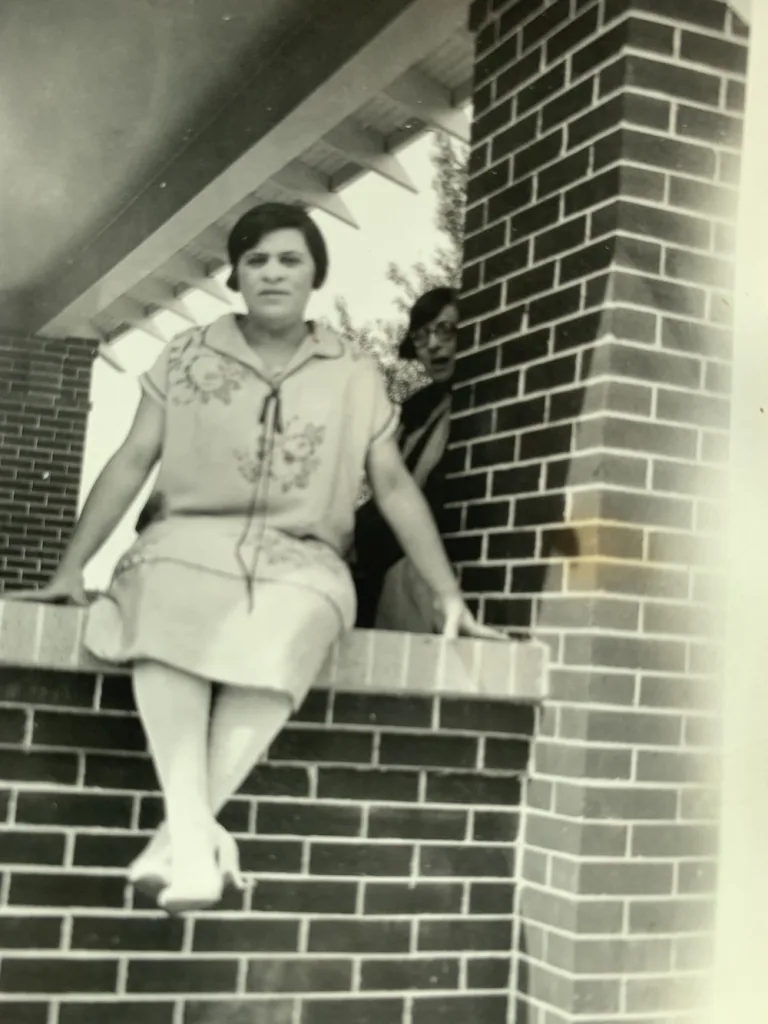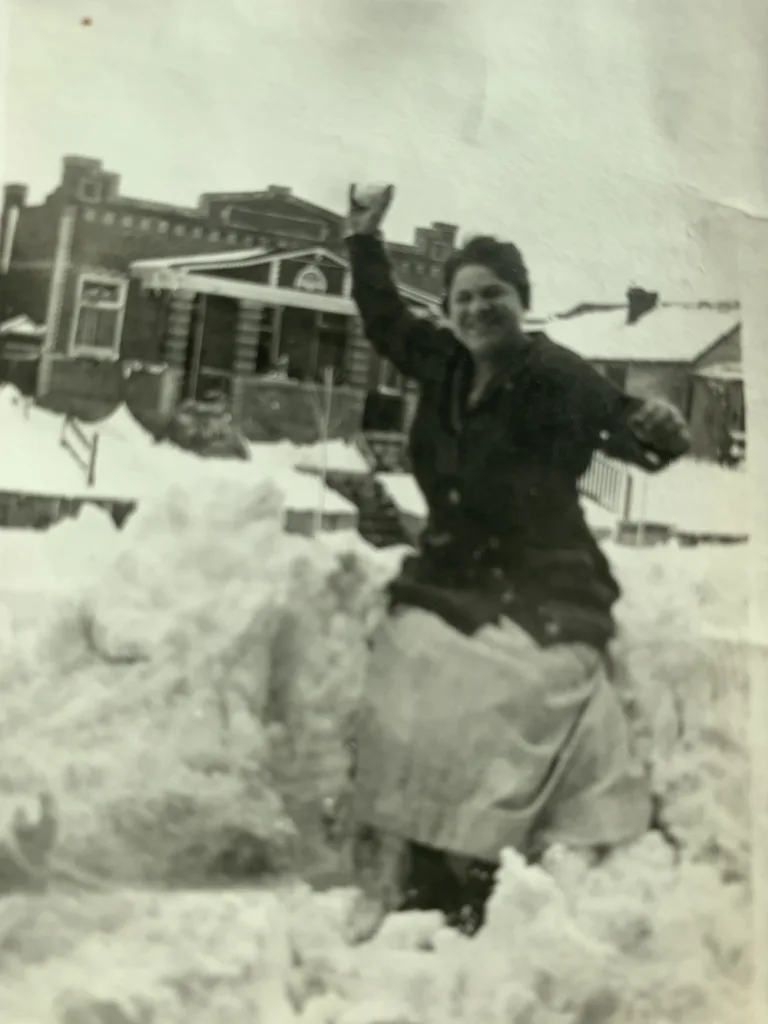

“Stories are light. Light is precious in a world so dark. Begin at the beginning. Make some light.” – Kate DiCamillo
I stood there, at first perplexed and then dumbfounded.
I was wrist deep in papers and pictures, tackling the long overdue project of going through the boxes that I had stored in the basement since my mother’s death over 5 years ago, when I came across two marriage licenses that belonged to my Nana. I didn’t recognize the names of the men on either of them.
It slowly dawned on me that my Nana, who had been born in 1898, had been married not once, not twice, but three times.
I knew about two of the marriages, but not the third and literally everyone who could tell me about that bonus marriage is dead. But not my imagination. Since finding out that my Nana was married three times, my imagination has run wild. Creating and re-creating scenarios. But for all my conjuring, the truth is dead and buried.
In her book, “The Library” Susan Orlean talks about the old African proverb that says, “When an old man (or woman) dies, a library burns to the ground.” Specifically, she says, “Our minds and souls contain volumes inscribed by our experiences and emotions; each individual’s consciousness is a collection of memories we’ve cataloged and stored inside us, a private library of a life lived. It is something that no one else can entirely share, one that burns down and disappears when we die. But if you can take something from that internal collection and share it—with one person or with the larger world, on the page or in a story recited—it takes on a life of its own.”
I carry many stories about my Nana and her life, and each has enriched my own library in some way. But I obviously don’t carry all of them. That would be impossible.
But getting married seems important and I wonder why my Nana choose not to share that story.
After finding her marriage certificates, I can’t help but wonder about the stories my Nana left untold. Which stories she curated out of her life history and why. I wonder why she didn’t share that she was married 3 times, yet kept the evidence.
I hope that happiness and joy were part of the story and it wasn’t just about regret, sadness and shame. I wonder if betrayal played a part. What about love?
Mostly I wonder what I, and perhaps countless others, could have learned about marriage, about divorce, about love, about being a young woman in the early 1900’s and perhaps even about heartbreak and redemption if she had dared to share her story.
What light might her darkness have shed?
